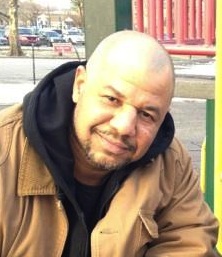Huffington Post’s The Blog: Exonerated, but Not Yet Free
Eighteen years ago, Carlos Perez was playing with his two-year-old son on a South Bronx stoop when a group of police officers drove up and shouted, “Freeze!” Carlos was handcuffed, arrested, and charged with murdering a cab driver and a Fed-Ex worker in the Bronx. He was eventually convicted and sentenced to 50 years to life in prison. From the beginning, Carlos insisted he was innocent. Two months ago, a judge finally believed him.
“When they released me that night, I felt like I was born again,” Carlos says, still in disbelief. He and two co-defendants were exonerated on one charge after a confession from members of a Bronx-based gang surfaced. The other charge was vacated, and he is expected to be fully exonerated at the next court date in late April.
But Carlos, now 43, has had little time to revel in his newfound liberty. “In reality, it’s been a struggle,” he says quietly.
Although reentry issues have attracted national attention in the last few years, it is still astonishingly difficult for people coming home from prison – even for someone like Carlos, who was wrongfully convicted. He came home with no money, no ID, and no proof of his exoneration other than a tattered copy of a New York Times article about his case. He was hungry – it would be a few weeks before his food stamps and welfare applications were processed. He was also homeless.
The barriers to reentry for people leaving prison are well documented and very familiar to us atThe Bronx Defenders, a holistic public defender office in the South Bronx that represents over 30,000 people accused of crimes per year. More than half a million people are released from prison every year in the United States, including nearly 25,000 people in New York State in 2011. Upon release, many find themselves floundering, due to a lack of family or community support, long waits for public housing, and discrimination from potential employers. A weak economy and draconian laws and policies barring people with certain convictions from obtaining public housingor pursuing certain types of employment make the odds even worse for people returning home. Although he was exonerated, Carlos is still grappling with many of these issues. Glenn Martin, Vice President of the Fortune Society, a reentry group, says he is not surprised. “Many of the same barriers to reentry that would impact a person who would ultimately have a conviction similarly impact people who are exonerated,” he remarks.
After all, like many people who have spent nearly two decades in prison – criminal conviction or not – Carlos was completely unprepared for life upon his release. His career and studies came to a halt when he was locked up. He also lost ties with his family and community. His long-time girlfriend left him and is in a new relationship. His oldest son, Dave, was murdered a few years ago. His second son, Steve, is in prison upstate serving a sentence of 20 years to life. His third son, Carlos Jr., was shot and is now confined to a wheelchair. “They grew up in the streets because Papi wasn’t home,” Carlos explains, shaking his head.
He is struggling to make up for lost time with Carlos Jr., and his youngest son, Christopher – the son who was taken from his arms when he was wrongfully arrested 18 years ago. “I’m a stranger to them,” Carlos says, his voice pained.
Although his experience is so similar to others who have been released from prison, Carlos is having an especially hard time getting the help he needs. Angela Amel, Director of Operations at the Innocence Project, said this is not unusual. “There are very few, if any, resources that are specifically for the exonerated,” she says.
Carlos came to The Bronx Defenders a few days after he was released. We helped him to get an ID, and to recover his property from an upstate prison. We also assisted him with the applications for food stamps, welfare, and public housing. But it takes time for his benefits to kick in and it could take years for him to get public housing.
In the meantime, he has missed a few public assistance appointments because he didn’t have the $2.50 for a Metrocard. He is staying in a homeless shelter. “My main concern is housing,” Carlos says. “I need a place where I’m stable.”
Carlos is finally out from behind bars, but for now, he is still not free.
We are currently accepting donations to help Carlos get back on his feet post-exoneration. Please contact us at carlosexonerationfund@gmail.

